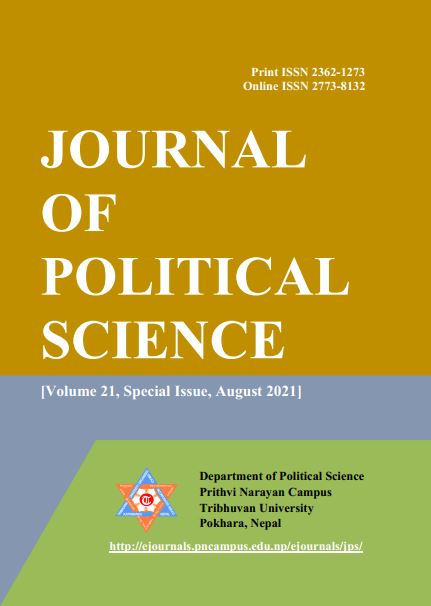Nepal's Engagement in BRI and MCC: Implications on Nepal's Geopolitics and Foreign Policy
DOI:
https://doi.org/10.3126/jps.v21i1.39288Keywords:
Theory of Geopolitics, belt and road initiatives, millennium challenge corporation, indo pacific strategy, Nepal’s foreign policyAbstract
Nepal's Engagement in BRI and MCC: Implications on Nepal's Geopolitics and Foreign Policy discusses on Nepal's engagement in the Belt and Road Initiative (BRI) and the USA's Millennium Challenge Corporation (MCC). In doing so, it defines BRI, MCC, and the perspective of Heartland under Mackinder's geopolitical theories briefly. The paper critically analyzes the issues and consequences of BRI and MCC on Nepal's geopolitics and foreign policy. It examines the BRI and MCC at global arena briefly that how they have been going global. Meanwhile, the paper assesses the relation of the Indo-Pacific Strategy (IPS) and the MCC. In addition, the paper critically evaluates the legacy of Nepal's foreign policy and the implication of MCC as per the Nepal Constitution-2015. It adopts with qualitative method. Finally, the paper concludes that Nepal has three options about the MCC compact and the best one is making a serious diplomatic effort from the Nepalese side to re-negotiate with the USA to review some provisions of the agreement.
Downloads
Downloads
Published
How to Cite
Issue
Section
License
Copyright (c) 2021 Department of Political Science, Prithvi Narayan Campus

This work is licensed under a Creative Commons Attribution-ShareAlike 4.0 International License.




